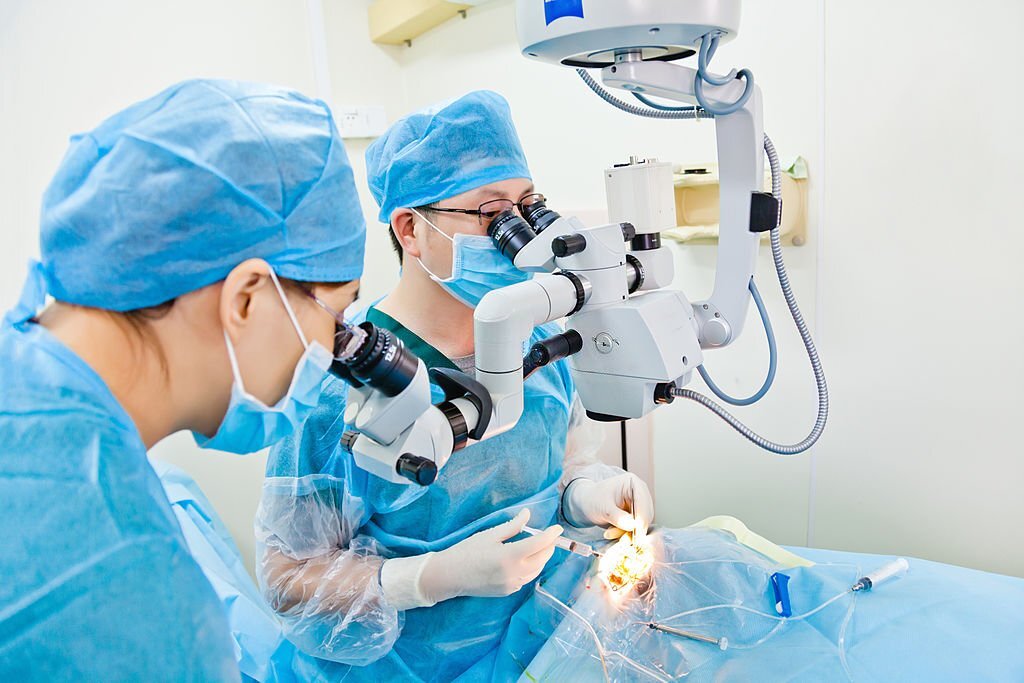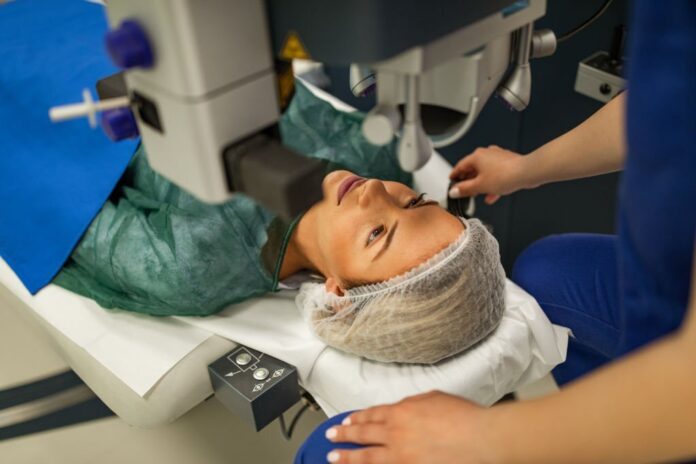Laser Eye Surgery
Laser Eye Surgery Bodrum, Turkey, has several clinics and hospitals that offer laser eye surgery for vision correction. Laser is a popular procedure that uses a laser to reshape the cornea and correct refractive errors such as nearsightedness, farsightedness, and astigmatism.
Some of the popular clinics and hospitals in Bodrum that offer eye surgery include:
- Bodrum American Hospital
- Bodrum Hastanesi
- Bodrum Medikal Center
- Akademia Hospital
Before undergoing eye surgery, it is important to have a thorough eye exam and consultation with a qualified ophthalmologist to determine if you are a suitable candidate for the procedure. They will also discuss the potential risks and benefits of the treatment, as well as the expected recovery process.

It is important to choose a reputable and experienced provider to ensure the best possible results. Patients who choose Bodrum for laser eye surgery can expect high-quality care in comfortable and modern facilities. The hospitals and clinics in Bodrum use state-of-the-art equipment and follow international standards for quality and safety.
Bodrum laser eye surgery, also known as refractive surgery, is a type of procedure that uses a laser to reshape the cornea of the eye in order to improve vision. It is a popular treatment for correcting refractive errors, such as nearsightedness, farsightedness, and astigmatism.
There are several types of laser eye surgery, but the most common ones are LASIK (Laser-Assisted In Situ Keratomileusis) and PRK (Photorefractive Keratectomy). During LASIK, a thin flap is created in the cornea using a microkeratome or a femtosecond laser, and the underlying corneal tissue is then reshaped with an excimer laser. The flap is then repositioned, and the eye heals naturally. PRK, on the other hand, does not involve creating a flap. Instead, the top layer of the cornea is removed, and the underlying tissue is reshaped with the excimer laser. The top layer then regenerates over time.
Bodrum Laser Eye Surgery
Bodrum Laser eye surgery is generally considered safe and effective, but like any medical procedure, there are potential risks and complications. It is important to have a comprehensive eye examination and consultation with a qualified ophthalmologist to determine if you are a good candidate for the surgery and to discuss the potential benefits and risks.

Here’s some additional information about laser eye surgery:
- Laser eye surgery is usually performed as an outpatient procedure, which means you can go home on the same day.
- The surgery itself is usually quick, usually taking only around 15 minutes per eye.
- Most people experience some discomfort or temporary side effects after the surgery, such as dry eyes, blurred vision, sensitivity to light, and halos around lights at night. However, these symptoms typically improve within a few days to a few weeks.
- While laser eye surgery can greatly reduce your dependence on glasses or contact lenses, it may not completely eliminate the need for them, especially as you get older and your eyesight changes naturally.
- Laser eye surgery is generally not covered by insurance, and the cost can vary depending on several factors, such as the type of surgery, the surgeon’s experience, and the location.
- Not everyone is a good candidate for laser eye surgery. Your ophthalmologist will perform a comprehensive eye exam to determine if you have any underlying conditions that could make the surgery risky or less effective, such as cataracts, glaucoma, or severe dry eye. Other factors, such as your age, prescription, and overall health, may also be taken into consideration.
If you are considering laser eye surgery, it’s important to do your research, talk to your ophthalmologist, and carefully consider the potential risks and benefits before making a decision.
Laser eye surgery is a type of medical procedure that uses a laser to reshape the cornea, which is the clear, front part of the eye, to correct refractive errors such as nearsightedness, farsightedness, and astigmatism.
The procedure is performed by a qualified ophthalmologist and typically involves using a laser to remove a small amount of tissue from the cornea to change its shape, allowing light to be focused correctly on the retina at the back of the eye. This can improve vision and reduce the need for glasses or contact lenses.
There are several types of laser eye surgery, including LASIK, PRK, LASEK, and SMILE. The type of surgery recommended will depend on the individual’s eye condition and other factors.
Laser eye surgery is generally considered safe and effective, with a high success rate. However, like any surgical procedure, there are potential risks and complications that should be discussed with a qualified ophthalmologist before deciding to undergo the procedure.
After the surgery, patients may experience some discomfort and visual disturbances, but these usually resolve within a few days or weeks. It is important to follow the post-operative care instructions provided by the ophthalmologist to ensure a successful recovery.
What are the Risks in Laser Eye Surgery?
While laser eye surgery is generally considered a safe and effective procedure, like any surgical procedure, there are potential risks and complications. Some of the possible risks and complications of laser eye surgery include:
- Dry eyes: Laser eye surgery can cause a temporary decrease in tear production, resulting in dry eyes. This can cause discomfort, blurry vision, and sensitivity to light.
- Overcorrection or undercorrection: The laser may remove too much or too little tissue, resulting in overcorrection or undercorrection of the refractive error, which may require additional surgery or the use of glasses or contact lenses.
- Glare or halos: Some patients may experience glare or halos around lights, especially at night, which can affect their ability to drive or perform other activities.
- Infection or inflammation: There is a small risk of developing an infection or inflammation after the surgery, which can cause pain, redness, and other symptoms.
- Corneal flap complications: LASIK surgery involves creating a corneal flap, which can result in flap-related complications such as dislocation, wrinkles, or infection.
- Vision loss: Although rare, there is a risk of permanent vision loss as a result of laser eye surgery.
It is important to discuss the potential risks and complications of laser eye surgery with a qualified ophthalmologist before deciding to undergo the procedure. The ophthalmologist will also discuss the specific risks and benefits of the procedure based on the individual’s eye condition and other factors.
The cost of laser eye surgery in Turkey can vary depending on several factors, including the type of procedure, the clinic or hospital where it is performed, the experience of the surgeon, and the location of the facility.
On average, the cost of LASIK eye surgery in Turkey can range from around 2,000 to 3,500 Turkish Lira per eye (approximately 265 to 465 US dollars). The cost of other types of eye surgery such as PRK, LASEK, or SMILE may be slightly different.
It is important to note that the cost of eye surgery may not include other expenses such as pre-operative exams, post-operative care, or medications. It is important to discuss all the costs associated with the procedure with the clinic or hospital beforehand.
It is also important to choose a reputable and experienced provider to ensure the best possible results. Turkey has several clinics and hospitals that offer high-quality laser eye at competitive prices. Patients can expect to receive modern facilities, state-of-the-art equipment, and experienced ophthalmologists who follow international standards for quality and safety.

